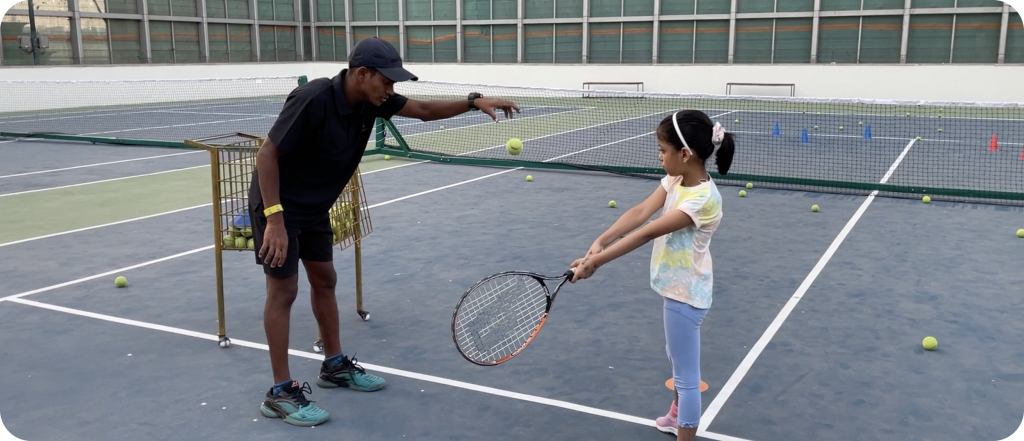How Should I Choose A Sport For My Child?

Sport helps children develop physical and mental abilities, increase connectedness, communication, and teamwork. It breaks down boundaries and boosts self-esteem amongst kids. But how do you choose the right sport for your child? Selecting a game for your child might be challenging. This article discusses five key factors to consider to help you pick the right sport for your child.

1. Competence:
Sport may be divided into open and closed skill categories. Open skill sports need fast-paced, unpredictable responses (e.g., football, tennis, basketball, cricket etc.). Closed skill sports are more constant, predictable, and self-paced (e.g., swimming, archery, golf etc). Understand your child’s awareness skills to make a choice between open vs. closed skilled sport. A child who chooses an open skilled sport will require high environmental and external awareness or broad concentration skills. While, a child who chooses a closed skilled sport may require high self awareness along with narrow concentration skills. Consider your child’s strength to help him feel competent in the chosen sport. Sport in early childhood must foster self-confidence.

2. Personality:
Is your child’s connection to the world social or is it more intellectual? A fun loving child is likely to engage and excel in a team sport, while a child who is straightforward and exact is likely to engage and excel in an individual sport. An emotional child may also choose an individual sport over a team sport. While determined and physically energetic children may consider team contact or non contact sports. As parents you may observe if your young child prefers to utilize separate lanes or alternate turns during participation as against games where they enjoy contributing in the game.

3. Connection:
Remember a part of choosing a sport for your child includes choosing a good coaching program. Select a program where coaches effectively communicate and emanate credibility, expertise, and respect. The key to helping your child feel motivated to play a sport is a healthy coach-player relationship. Additionally, you must provide an opportunity for your child to feel connected with others and to make friends.

4. Physical literacy:
One of the main goals of sport engagement is fun and movement. Consider age appropriate games for your child. For instance, for kids between the ages of 3 to 6, sports should be enjoyable and unstructured. Gymnastics based activities, running, and jumping are all excellent ways to support balance and coordination. Till your child attains 10 to 12 years of age believe in multi-sport and let your child to experience various sports.

5. Readiness:
When a child is sport-ready, you will observe that their motor skills are compatible with the demands of the sport. Does the child have the right mindset and emotional maturity to handle challenging situations? Be observant to see if your child is prepared for a regulated routine and commitment before deciding on a specialization sport for them. Along with the body, the mind must also be prepared.
To conclude, regardless of the sport your child chooses, you must be your child’s biggest fan!
Article by:
Dr. Janki Deole




